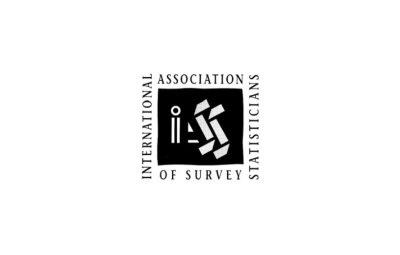Niels Keiding: 1944 – 2022
After an extended period of illness, Niels passed away on 3 March 2022 and biostatistics in Denmark has lost our “grand old man”. It is hard to exaggerate the influence that Niels has had on both theoretical and applied statistics in Denmark and also worldwide.
Niels’s father was a biologist working with insects that are pests for agriculture and, by following his father’s work, Niels realized early that he would also work with biological data, i.e., he wanted to become a biostatistician. After high school, Niels became ‘cand.stat’ (master of statistics) in 1968 – at that time, a relatively new program at the University of Copenhagen. After graduation, he did his military service working with analyses of intelligence tests for the conscripts. His early professional career started with the post of Assistant/Associate Professor at the Department of Mathematical Statistics, University of Copenhagen – a very strong department with young and active staff. The head of the department was Professor Anders Hald who was also Niels's master thesis advisor. Although strong in mathematics, Niels focused on applications (in cooperation with researchers from subject-matter areas – mostly in medicine). Niels never took a PhD (in fact, he was proud that he never had to show his official credentials).
Niels was a founding member of the Danish Society of Theoretical Statistics in 1971 (secretary 1971-75) and among those who took the initiative to establish the Scandinavian Journal of Statistics in 1974. In 1978, Niels initiated establishment of the ‘Statistical Research Unit’, which was financed for 5 years by Danish Research Councils. Later this developed into the Section of Biostatistics at the Faculty of Health Sciences at the University of Copenhagen, which is now a well-established center for biostatistics in Denmark. Niels became a full professor there in 1984 and he was the head of the section until 3 years before he retired in 2014. Then he became professor emeritus at the section and kept working actively throughout his retirement.
Through the establishment of the `Statistical Research Unit', Niels has had, as already mentioned, an enormous impact on Danish biostatistics. Through his work in international (bio-)statistical societies, he has also influenced international statistics. He was Treasurer of the Bernoulli Society for Mathematical Statistics and Probability (1981-87); Chairman of the board of Scandinavian Journal of Statistics (1988-91); Vice President (1991 and 1994) and President (1992-93) of the Biometric Society. He served on the Research Section Committee of the Royal Statistical Society (1999-2003) and was member of Council and several ad hoc committees in the Institute of Mathematical Statistics and the International Statistical Institute (ISI). He was Vice President of the ISI in 1997-99, President-elect in 2003-05, and President in 2005-07. For these achievements, Niels received a number of honors, including: Elected membership of ISI, 1978; Fellow of Institute of Mathematical Statistics, 1987; the Marvin Zelen Leadership Award in Statistical Science, 2001; elected as Foreign Member of the Norwegian Academy of Science and Letters, 2005; degree of Honorary Doctor at
University of Bordeaux, France, 2005; Honorary Life Member, International Biometric Society, 2008; Norman E. Breslow lecturer, Department of Biostatistics, University of Washington, Seattle, 2010; member of Academia Europaea, 2011.
Niels has authored or co-authored several important publications, including early work on branching processes as well as a number of publications dealing with the statistics. He took the initiative to establish the group of authors of the Springer book by Andersen, Borgan, Gill and Keiding (1993): “Statistical Models Based on Processes”. His publications show his interests in demography and time-to-pregnancy and, more recently, he co-authored review papers on statistical methodology in epidemiology. He has supervised several PhD students in biostatistics or epidemiology and he has been active in university administration as well as in (national and international) evaluations of research proposals, academic positions, and scientific theses.
Niels’s initiatives, his vision and professionalism and his clear ideas about the role of biostatistics has worked as an inspiration for all (bio-)statistical departments in Denmark. Even though Niels is not with us anymore, we will still benefit from his visions and the initiatives that he undertook. More importantly, his legacy not only includes the institutions that he initiated but, to an even larger extent, the numerous persons supervised by Niels who now continue the tradition of professionalism and rigor and, as statisticians in academia or industry, will, themselves, influence future generations of statisticians in Denmark.
Per Kragh Andersen, Esben Budtz-Jørgensen and Claus Thorn Ekstrøm
University of Copenhagen




